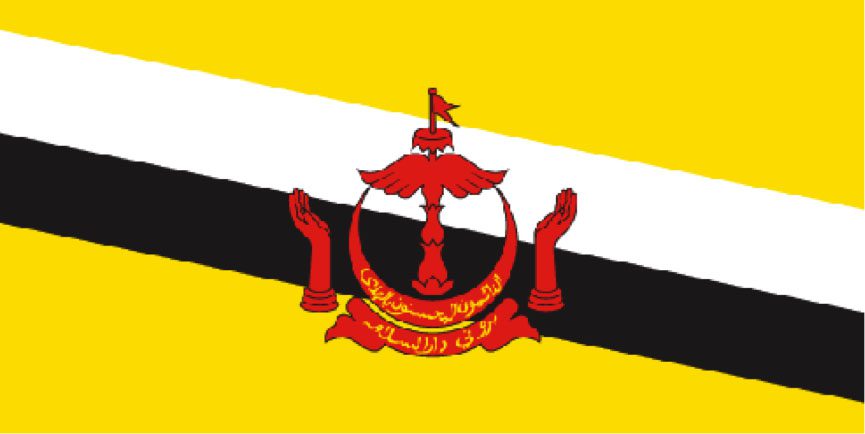All eyes will be on Brunei this year as it assumes the Asean chairmanship. Will the bloc’s little guy have an impact on the big stage?
By Hannah Jewitt
As dawn breaks on Brunei’s chairmanship, internal tensions rocking Asean threaten to steer the ten-member vessel deeper into the stormy clouds of the Asia-Pacific. Is one of the smallest nations in Asean capable of steadying the ship?

Asean relations ran aground during last year’s July ministerial meeting in Phnom Penh, when the bloc failed to release its customary joint communiqué for the first time in its 45-year history. The issue of contention was the territorial dispute in the South China Sea, with China successfully courting chair Cambodia into its camp.
The absence of a united front under Cambodia’s chairmanship led to speculation that the South China Sea might sink Asean. But with the gavel in new hands, some observers are hopeful that Brunei, while limited in its political clout, will encourage stability.
“Brunei will chair Asean with quiet efficiency,” said Dr Munir Majid, senior fellow at the London School of Economics. “However, do not expect great initiatives. Brunei will be impartial but will not drive major proposals, [which] will have to come from bigger members such as Indonesia.”
Ultimately, the political reach of the country at the helm of Asean will boil down to its size, said Dr Lee Jones, lecturer in the School of Political and International Relations at Queen Mary, University of London.
“When smaller states run Asean, they tend to try to keep things ticking over rather than provide bold leadership or propose new initiatives. Other states may treat Brunei politely as Asean chair, but they are unlikely to defer to it,” said Jones. He added that bigger states such as Indonesia may attempt “to influence Brunei behind the scenes” as it fears the effect a series of weak Asean chairmanships – Myanmar and Laos will pick up the baton after Brunei – will have on the bloc politically and diplomatically.
“[Brunei] lacks both a large and high-quality diplomatic establishment that can manage the association effectively,” said Jones.
However, the oil-rich state will be the first Asean country to host an official US-Asean summit, as President Barack Obama steps up US re-engagement with the region.
“The US has stated its interest in a peaceful resolution of the South China Sea dispute, which alarms China; it wants to deal with disputants bilaterally – to maximise its bargaining power – and resists the further internationalisation of the conflict,” said Jones.
Yet as China’s claim to the disputed Spratly Islands in the South China Sea overlaps Brunei’s “exclusive economic zone”, the Sultanate is not a neutral party.
“As a claimant to areas of the South China Sea, Brunei is not a disinterested player. It is merely a small and weak one,” said Jones. “This will give it an incentive to pursue a peaceful settlement with China in a way that a non-claimant Chinese ally like Cambodia simply lacks; so [Brunei’s territorial claim] is not necessarily a bad thing.”
Another issue likely to shape the Asean agenda in 2013 is the formation of a single regional economy at the end of 2015.
“[Under Brunei’s chairmanship] there will need to be a major push to implement measures necessary to complete the Asean Economic Community,” said Michael Plummer, Eni Professor of International Economics at Johns Hopkins University, Bologna. “Most countries appear to be falling behind at least in some areas and 2013 will be a key year in the run-up to 2015.”
A pint-sized house of peace
Brunei Darussalam may be one of the smallest nations on earth, but it is home to some of the largest oil fields in Southeast Asia and one of the richest royals in the world. Head of state since 1967, Sultan Hassanal Bolkiah’s wealth is based on the country’s oil and gas reserves and is valued at $10 billion. Not one to resist an indulgent spending spree, the sultan is famous for his vast automobile collection, said to include some 7,000 cars including 600 Rolls-Royces, 450 Ferraris and 134 Koenigseggs – the largest collection of the Swedish hypercars in the world. His official residence, the $350m Istana Nurul Imam palace, has 1,788 rooms and 257 bathrooms, but an array of assets and hotels as far afield as Paris and Las Vegas also stand in his name.
Thanks to its large reserves of oil and gas, Brunei’s population of four million enjoys one of the highest standards of living in the world, with a GDP per capita of $49,500, making it the fifth wealthiest of 182 countries. However, with its oil and gas reserves tipped to run dry within the next two decades, Brunei is trying to diversify its economy, a move that may ultimately alleviate its dependency on imports. Brunei’s black gold has spared its above-ground resources, leaving the country with some of the most intact primary forest in all of Borneo.

